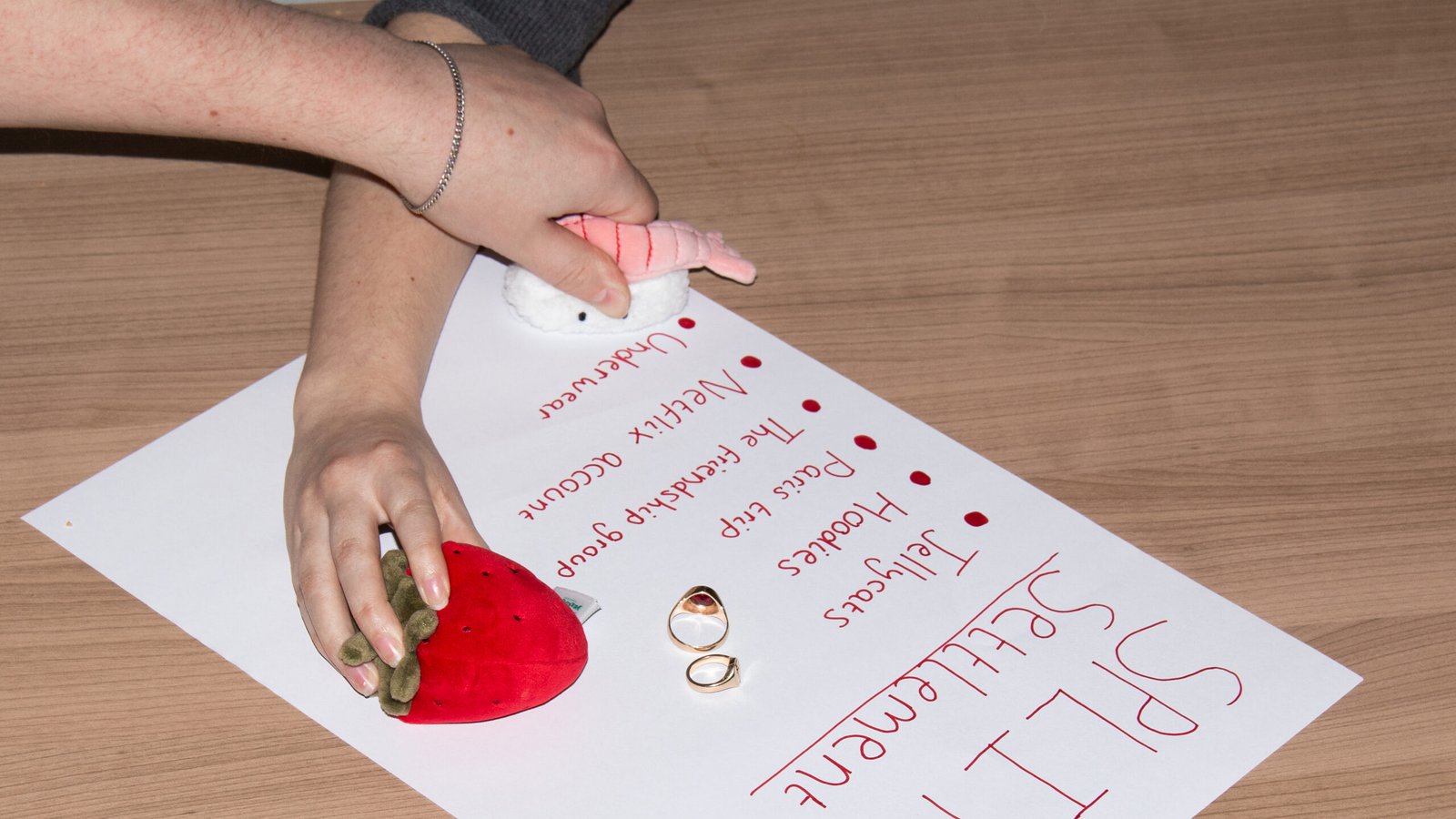Even before marriage, our lives become financially and emotionally tangled. But when your first love reaches its tragic end, how do you split your shared possessions? The Split spoke to divorce lawyers Mel Loxley, Karen Taylor, Shelley Cumbers and Jon Armstrong about how best to amicably divide your assets
My partner and I have just split up – what should I do?
Mel Loxley: The first thing I ask new clients is: do you think the relationship has definitely broken down irretrievably? The next thing I tend to talk about is the importance of communication and taking the time to talk things through and actively listen.
But they have all my stuff at their place! This is so stressful!
Karen Taylor: As lawyers, we’ve learnt what the law is, but when you’re dealing with people, there are lots of other things to think about. Firstly, I encourage people to get their practical support in place. We don’t make good decisions when we’re angry or upset. If it’s the first time you’re broken-hearted, then it’s even more important. You want people who can help you understand your emotions before you rush into divvying things up.
I’ve stopped crying into my pillow and really want my hoodie back. Now what?
Karen Taylor: Once you’ve got your network safe around you, then sit down and make a list of what you have and what you’re going to need. Be sure to prioritise the most crucial items. Which ones are you going to have to deal with next week as opposed to six months or a year? When you’re making your agreement, write it down, both of you, so you have a record of it. Make it more business-like because then people are more likely to follow through with it. Give yourself a deadline: we’ll swap things over at the end of March. Sign it. Date it.

Where should we hold this meeting?
Karen Taylor: Go out somewhere in public and get a coffee. If you’re in public, you’re less likely to kick off. Eating food and drinking together takes a lot of the tension out of things. It’s really hard to be angry with someone if you’ve got a mouthful of mac and cheese.
What if I literally can’t bear to be in the same room as them?
Shelley Cumbers: If you can keep open a channel of communication, then you’re more likely to reduce the amount of issues. You should speak to one another, listen to one another and take on board how the other is feeling. If one of you has cheated, then you need to allow some time.
No, you don’t understand. We’ll tear each other to shreds.
Karen Taylor: Ask a mutual friend to play piggy in the middle. Find somebody that you both still get along with or that you can trust not to take sides.
My friends all hate my ex too… they cheated on me.
Mel Loxley: If you’re not on good enough terms, then you just have to cut your losses and do what you can to retrieve your belongings. If one of you cheated, the person who was cheated on may get more of what they want because the cheater feels guilty. It’s important for any separating couple to remember that there aren’t any strict rules that they have to do this or that. They are masters of their destiny. So the more grown-up and mature and reasonable you can be, the better for both of you.
They won’t return the fridge magnet we bought in Budapest! What should I do?
Jon Armstrong: Courts will not get bogged down on deciding who keeps the frying pans and the kitchen chairs. If the parties couldn’t agree, then a judge would threaten to sell the items on eBay. I think the threat is usually enough to get people to focus on reaching agreements.
They’re also refusing to return the Jellycats I bought them! And they’ve locked me out of our Netflix account!!!
Mel Loxley: In regards to the Jellycats, legally speaking, gifts belong to the person who received them. Try not to sweat the small stuff too much because, obviously, you can just create a new Netflix account without too much difficulty.
But they cheated! Surely I should get to keep everything.
Jon Armstrong: Blame very rarely makes any difference. In family law, we are more focused on the future than the past. In my experience, there are very few relationships where it’s entirely one person’s fault that it broke down. You get the odd one. I’m not saying it’s always equal responsibility, but I can only think of a few where one was entirely to blame.
Okay, fine, but they earn much more than me, too. How is that fair?
Mel Loxley: If you have different incomes and you’ve jointly purchased expensive items, like a TV, it could be argued that the person who’s got the higher income is more able to buy a new one. Then you could look at the resale value and pay the other person half of it. If you can’t figure it out (or rock, paper, scissors it), then it’s probably best for neither of you to get it.
This meeting is going horribly. They won’t compromise at all.
Mel Loxley: I always encourage my clients to think about the things that they would be happy to compromise on. This means that they can keep things that may have a more emotional significance to them, like the Jellycats, in return for giving up things with more financial worth, like the holiday. In terms of strategic thinking, you don’t always want the other person to know what you’re happy to give up. People may hold it back so that it’s something they can pretend to compromise on in return for keeping something they actually want.
So I really have to choose?
Karen Taylor: One of the things, as collaborative lawyers, that we’re taught to do is to try and identify what’s important to each person. So if two of the Jellycats are really important to you but your ex doesn’t particularly care, then your ex can have the third, and maybe there’s something else they could have in return to balance things out. As long as they’re not the sort of people who are going to burn the Jellycats behind the other person’s back.
